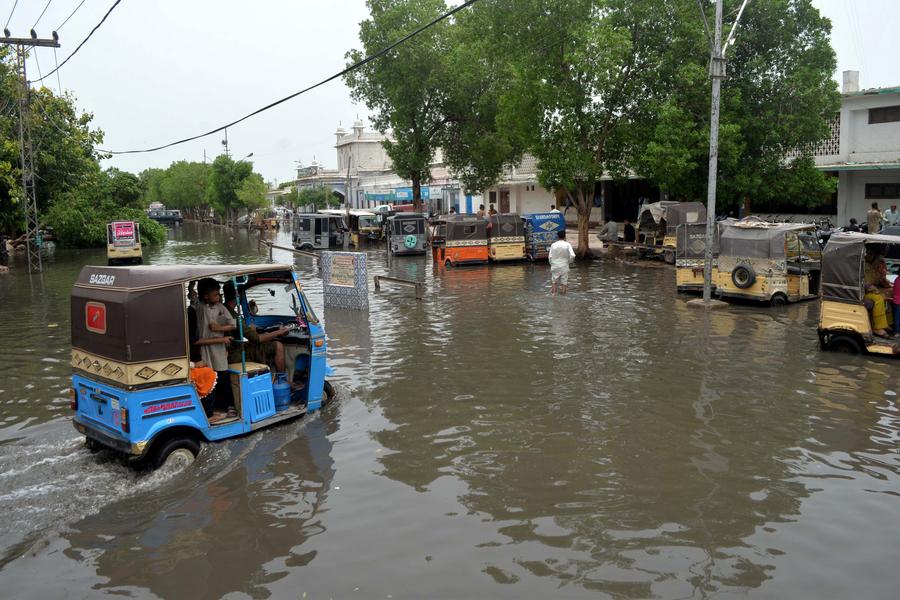Torrential monsoon rains have wreaked havoc in Pakistan’s Punjab province, killing at least 63 people and injuring nearly 300 within just 24 hours since the downpours began on Wednesday morning. The catastrophic weather has pushed the nationwide death toll to nearly 180 since the start of the monsoon season in late June, with more than half of the victims being children.
The National Disaster Management Authority reported that most of the fatalities resulted from collapsing buildings, while others were caused by drowning and electrocution. Authorities in Rawalpindi, which borders the capital Islamabad, declared Thursday a public holiday in a bid to keep people safe at home. Residents living along the banks of a swelling river in the city have been ordered to evacuate amid fears of further flooding.
Chief Minister of Punjab, Maryam Nawaz, has declared a state of emergency in several affected areas. In a message posted on X (formerly Twitter), she assured citizens that government agencies were working tirelessly and urged the public to follow safety guidelines. The rains have shut down expressways and severely disrupted air travel, with dozens of flights cancelled or delayed.
In Chakwal, one of the worst-hit cities which received over 400mm of rain in a single day, rescue operations are ongoing. Images and footage show military helicopters flying over submerged areas while boats comb through floodwaters searching for stranded residents.
Forecasts indicate more rainfall and flash floods are expected through the weekend, prompting authorities to place thousands of rescuers on high alert across the province.
Pakistan, with a population of nearly 250 million, remains one of the countries most vulnerable to climate change. It faces the dual threat of extreme heat and monsoon deluges, further intensified by the rapid melting of over 13,000 glaciers in its northern regions.
The current disaster evokes painful memories of the 2022 floods, which submerged a third of the country, killed 1,700 people, and inflicted economic damage exceeding $30 billion. In 2023, the United Nations urged global action, declaring Pakistan a “double victim” of climate change and a “morally bankrupt” international financial system.
As monsoons continue to batter the region, the nation once again finds itself on the frontlines of a worsening climate crisis.

